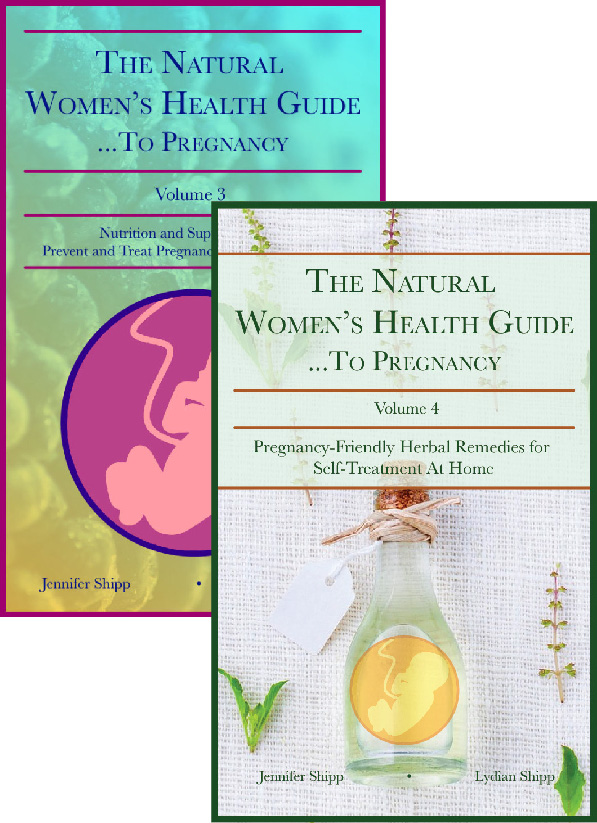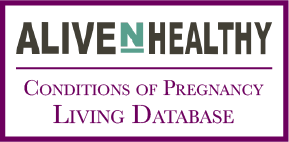 Vitamin C and Pregnancy: How This Important Vitamin Can Improve Pregnancy Outcomes for Both Babies and Mothers
Vitamin C and Pregnancy: How This Important Vitamin Can Improve Pregnancy Outcomes for Both Babies and Mothers
Vitamin C is safe in both low and high doses during pregnancy and breastfeeding. Women who are pregnant should note that taking somewhat higher doses of vitamin C during pregnancy carries a variety of important benefits, including a decreased risk of hemorrhage, among other vital benefits that I'll discuss in this article.
Dr. Frederick R. Klenner administered 4g of vitamin C per day to pregnant women in their first trimester, 6g per day during their second trimester, and between 10-15g per day during their third trimester. There were over 300 women who participated in Dr. Klenner’s study, and among these women, there were virtually no birth complications and not a single case of hemorrhaging. In addition to this, there was no cardiac distress or toxic manifestations, and the women under Dr. Klenner’s care tended to have less painful, shorter labors and gave birth to healthy infants.
Dr. Klenner was, notably, the first physician to deliver a surviving set of quadruplets in the Southeast US (the mother of the quadruplets had followed his vitamin C protocol during her pregnancy).
There is a lot of misinformation about vitamin C, but pregnant women should know that vitamin C in high doses DOES NOT cause miscarriages or spontaneous abortion. In fact, there isn’t any real evidence that vitamin C actually can cause miscarriage or abortion, though there’s an abundant amount of information that it can do the opposite (help women carry their babies to term and then give birth to healthy infants). In fact, the babies born to the women who had been given high dose vitamin C in Dr. Klenner's care were known as the "Vitamin C Babies" among the nurses at the hospital where they were born because of their (generally) remarkably calm, peaceful temperament and overall better adaptability following birth.
Vitamin C is needed in higher amounts in women who are pregnant than in women who aren’t (note that a woman who is breastfeeding also tends to need more since she is under stress, is recovering from birth, and must also continue to supply adequate levels of vitamin C to her baby). As a woman’s pregnancy progresses, her blood volume increases, leading to an increased amount of energy being expended on managing the flow of this blood through the body and to the placenta and fetus. Vitamin C helps protect blood vessels and veins and increases their elasticity, meaning that it can improve the health of the entire cardiovascular system during pregnancy. The fetus also has its own vitamin C needs, and as it grows, it may take in extra vitamin C from its mother, leaving the mother potentially deficient (and, if she really isn’t getting enough vitamin C, the fetus may be somewhat deficient as well).
Consider this: unlike most mammals, humans don’t produce our own vitamin C. We MUST take in ALL of our vitamin C from our diet (or from supplements). In contrast, mammals like cats, monkeys, guinea pigs, and other animals manufacture their own vitamin C. Any other vitamin C they may get from their diet is technically extra (though sometimes it’s quite a bit extra). To illustrate some of these comparisons clearly, I’ve noted some examples below:
- Goats make about 80mg of vitamin C per pound of body weight. This evens out to about 9000mg of manufactured vitamin C per day for a 110 pound goat. For a woman weighing 150 pounds, this would work out to a daily requirement of about 12,000mg of vitamin C.
- Monkeys take in approximately 40mg of vitamin C in their diets per pound of body weight. If a 150 pound woman were to take in the same dietary amount of vitamin C, she would be eating at least 6,000mg of vitamin C per day.
- Guinea pigs who are pregnant must have 15-25mg of vitamin C per day per kilogram of body weight. 150 pounds is about 68kg. Therefore, if an adult woman consumed as much vitamin C as a guinea pig needs, she would need to take about 1000-2000mg of vitamin C per day.
- As a final example, rats synthesize their own vitamin C at a rate of 20-70mg per day. A rat weighs about ¾ of a pound. If applied to an average-weight female, this would mean that the woman would need to consume 5,000-17,000mg of vitamin C per day.
Now consider that the RDA of vitamin C for pregnant women (set out by the FDA and the Powers That Be) is only a mere 85mg per day, and only 120mg per day during lactation. To further put this in perspective, this would mean that most women would need to consume the equivalent of about two oranges or a single red bell pepper per day to get enough vitamin C If you open up ANY book with information about diet during pregnancy and breastfeeding… chances are good that you’ll see plenty of encouragement to eat foods that are rich in vitamin C, which is an indicator that, well, this RDA is extremely limited and not at all accurate. In reality, the RDA amounts are actually a base amount that a person has to get of a nutrient before they start developing a true deficiency disease, not the optimal amount that their body needs to thrive.
Besides improving the mother’s health, vitamin C supplementation during pregnancy can also improve the health of the infant. In particular, supplementation with this vitamin can help prevent birth defects by preventing damage by heavy metals, radiation, genotoxins, and pesticides (which have been linked to the development of autism and developmental delays in children who were exposed to high amounts of them when in utero). Vitamin C can neutralize all of these toxins when administered at the proper dosage.
Women can continue taking vitamin C in somewhat higher doses (say, between 4,000-10,000mg daily, depending on the mother’s tolerance) after the baby is born to continue giving the baby higher levels of vitamin C for their first months of life. This may help the baby be calmer both during waking and sleeping times. In the postpartum period for mothers, vitamin C supplementation even at a dose of 3000mg per day can increase libido, improve sexual satisfaction, and reduce depression, stress, and anxiety. In addition, women who have had a C-section or another type of post-birth surgery may particularly benefit from vitamin C supplementation following the birth of their baby because this nutrient can help the body repair wounds more quickly and cleanly.
The best forms of supplemental vitamin C to take are liposomal vitamin C and pure ascorbic acid supplements or powder. Liposomal vitamin C will generally be more expensive, but it’s also more bioavailable and is absorbed more quickly into the bloodstream. Pure ascorbic acid is free of excipients or other potentially undesirable ingredients, and also tends to be more affordable (and therefore, it may be more comfortable on the wallet to take higher doses of it).
Take the vitamin C in divided doses throughout the day. Some people have a more sensitive stomach than others, in which case they will need to take smaller, more frequent doses (for instance, one mother-to-be may handle three doses of 5,000mg of vitamin C just fine during her third trimester, while another may need to break up an overall smaller dose of 10,000mg into 2,000mg doses five times a day in order to be comfortable). Increase the dose incrementally at first, waiting about 15 minutes between each 1000mg dose, until you feel your stomach begin to gurgle. This is your “saturation” level. Whenever you get to this level, this is the maximum dose that you can handle in one dose. Plan your dosing amounts and times accordingly.

"The Natural Women's Health Guide... to Pregnancy - BUY HERE!"
Click here to subscribe to the Living Database!
Related Posts:
Resources:

 The Conditions of Pregnancy Living Database, BETA Release - NOW AVAILABLE! Click here to learn more...
The Conditions of Pregnancy Living Database, BETA Release - NOW AVAILABLE! Click here to learn more... BULKSUPPLEMENTS.COM Ascorbic Acid Powder - Vitamin C Powder, Pure Vitamin C Ascorbic Acid, 1000mg Vitamin C - Powdered Vitamin C, Food Grade & Gluten Free - 1000mg per Serving, 1kg (2.2 lbs)
BULKSUPPLEMENTS.COM Ascorbic Acid Powder - Vitamin C Powder, Pure Vitamin C Ascorbic Acid, 1000mg Vitamin C - Powdered Vitamin C, Food Grade & Gluten Free - 1000mg per Serving, 1kg (2.2 lbs)
 Pure Encapsulations Ascorbic Acid Capsules - 1,000 mg Vitamin C - Antioxidant & Immune Support* - High-Potency Vitamin C - Vegan & Non-GMO - 90 Capsules
Pure Encapsulations Ascorbic Acid Capsules - 1,000 mg Vitamin C - Antioxidant & Immune Support* - High-Potency Vitamin C - Vegan & Non-GMO - 90 Capsules
 NutriFlair Liposomal Vitamin C 1600mg, 180 Capsules - High Absorption, Fat Soluble VIT C, Antioxidant Supplement, Higher Bioavailability Immune System Support & Collagen Booster, Non-GMO, Vegan Pills
NutriFlair Liposomal Vitamin C 1600mg, 180 Capsules - High Absorption, Fat Soluble VIT C, Antioxidant Supplement, Higher Bioavailability Immune System Support & Collagen Booster, Non-GMO, Vegan Pills

















